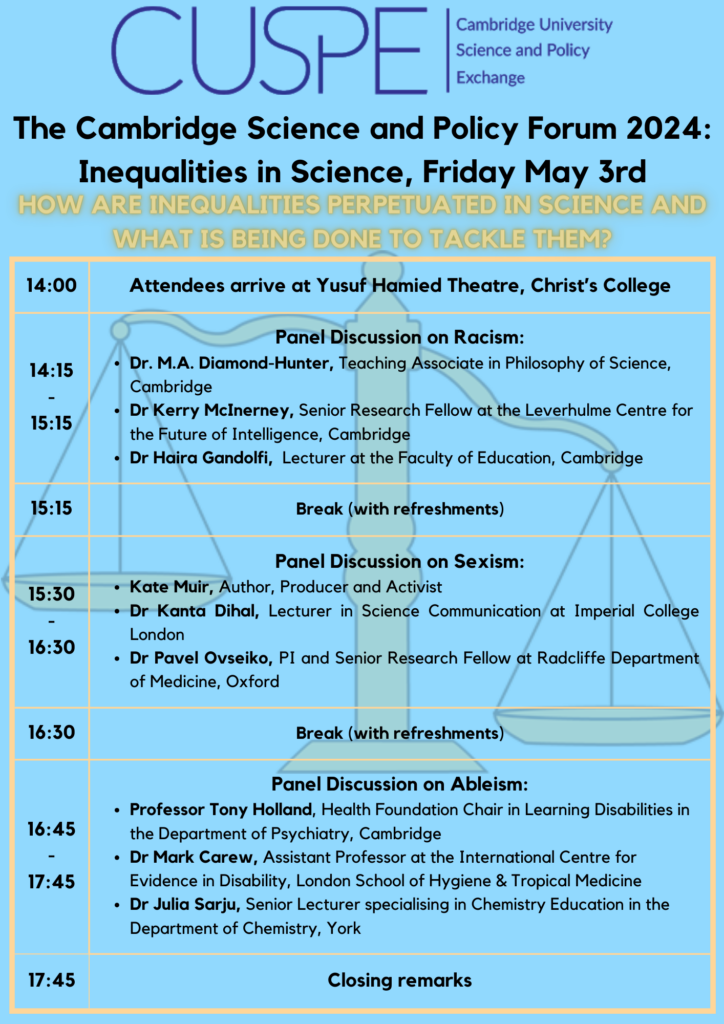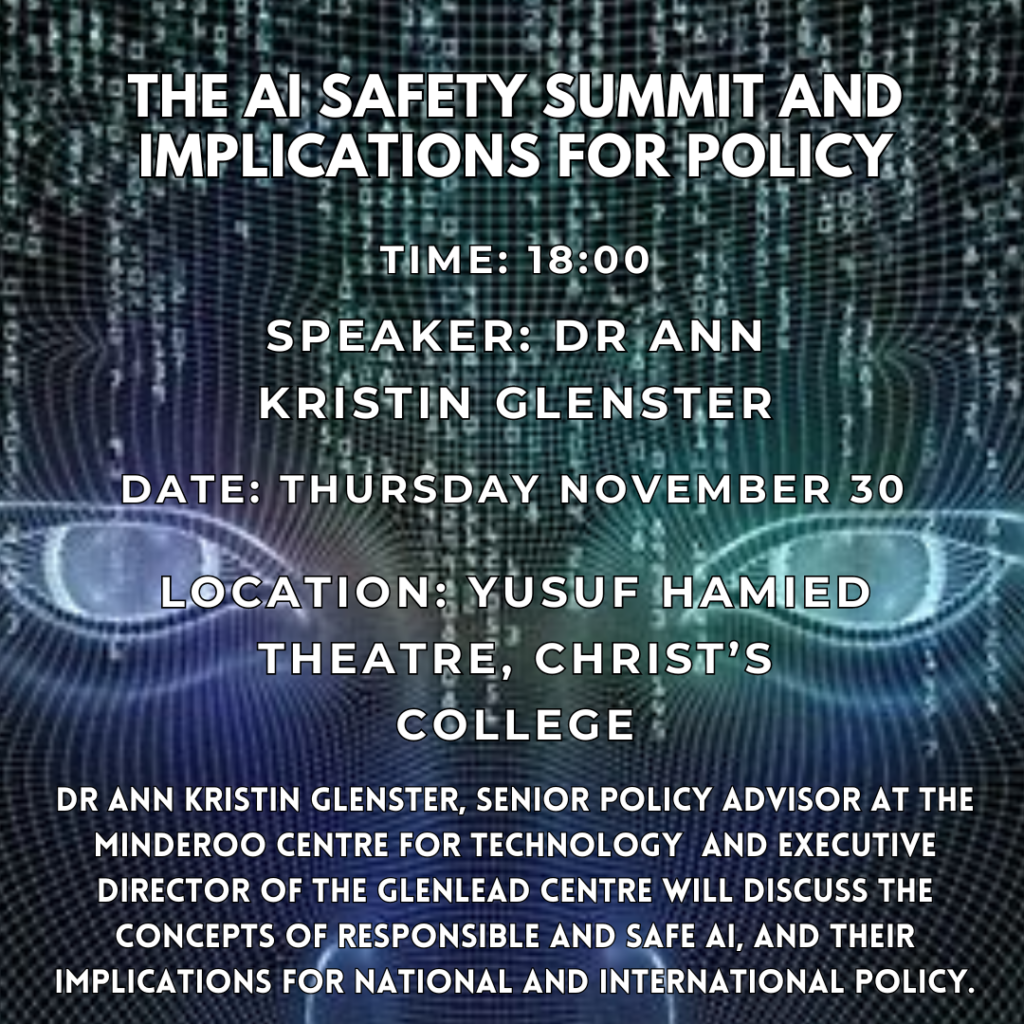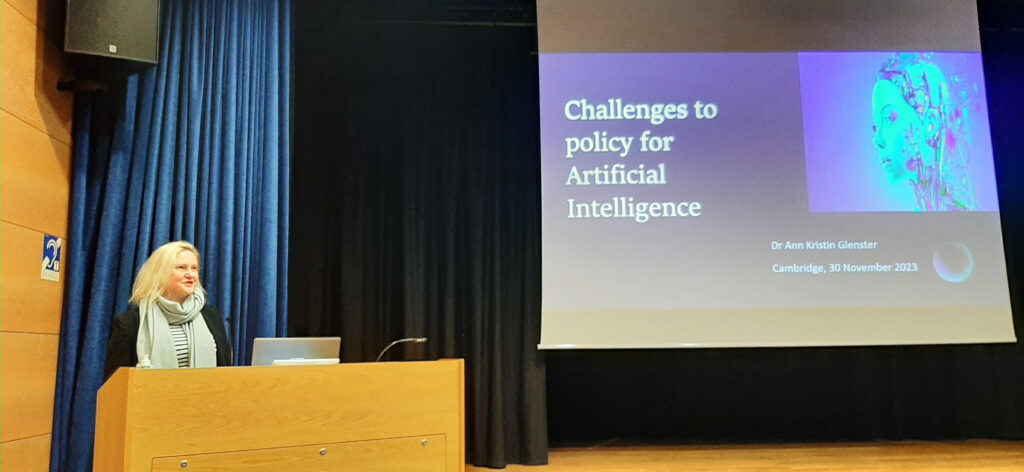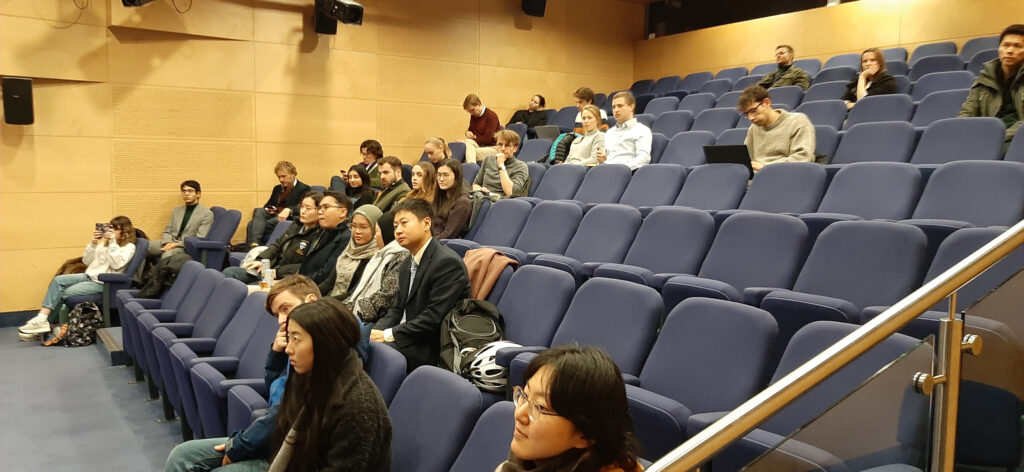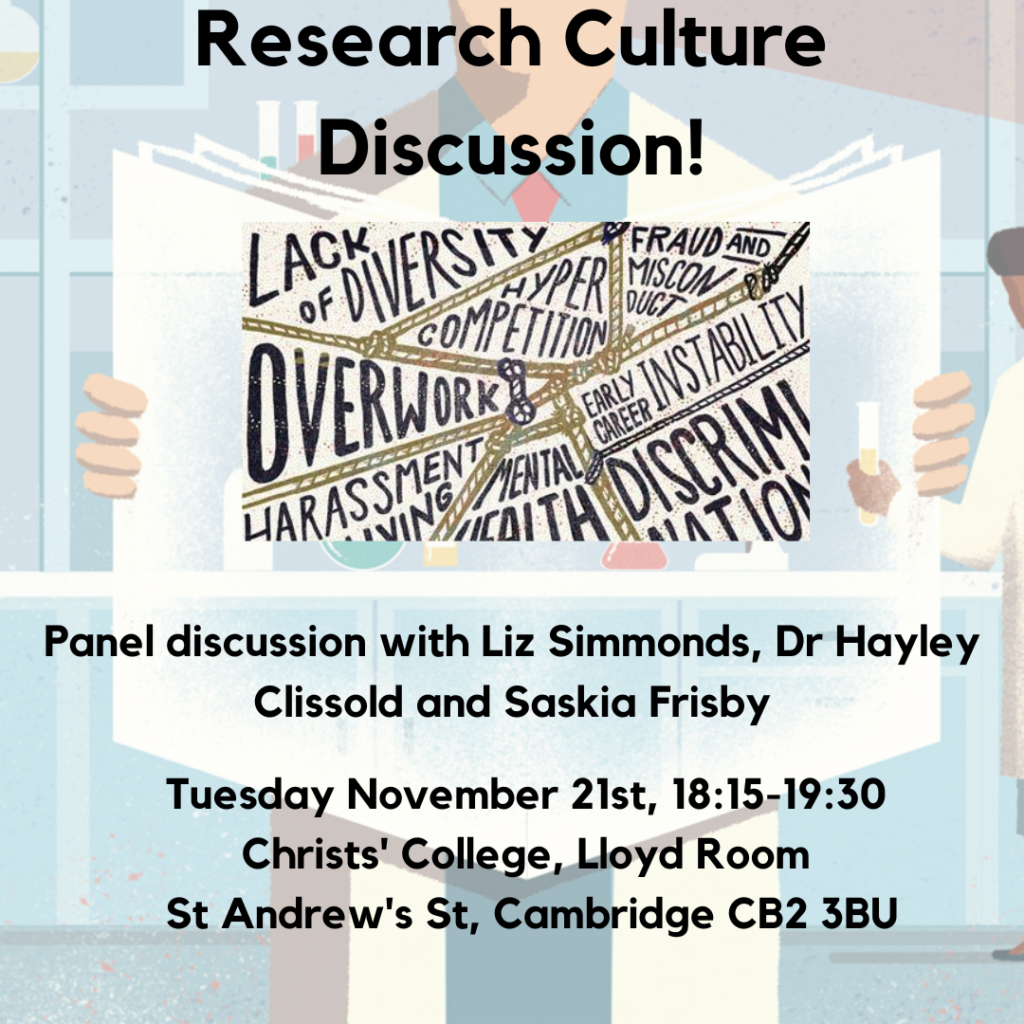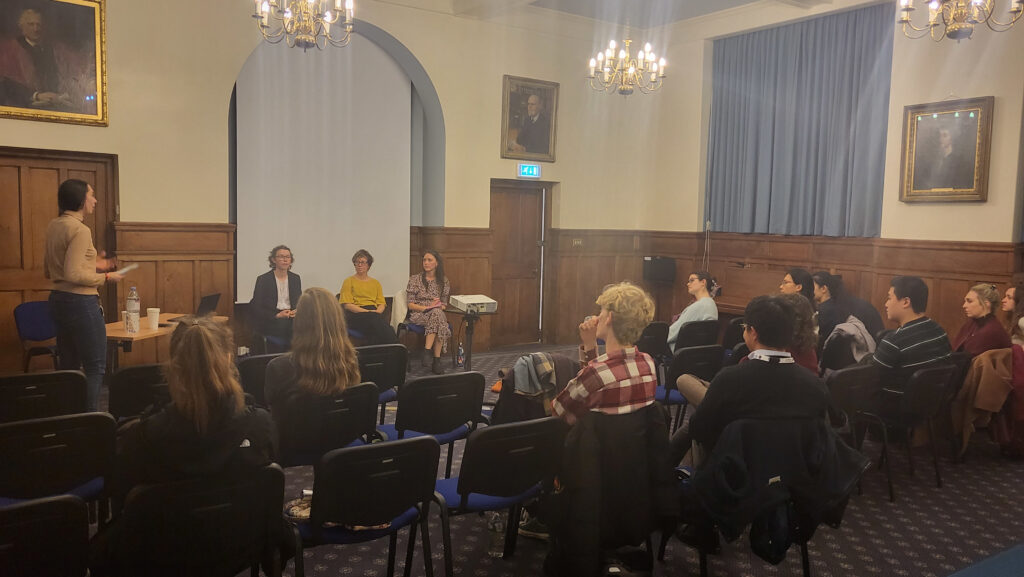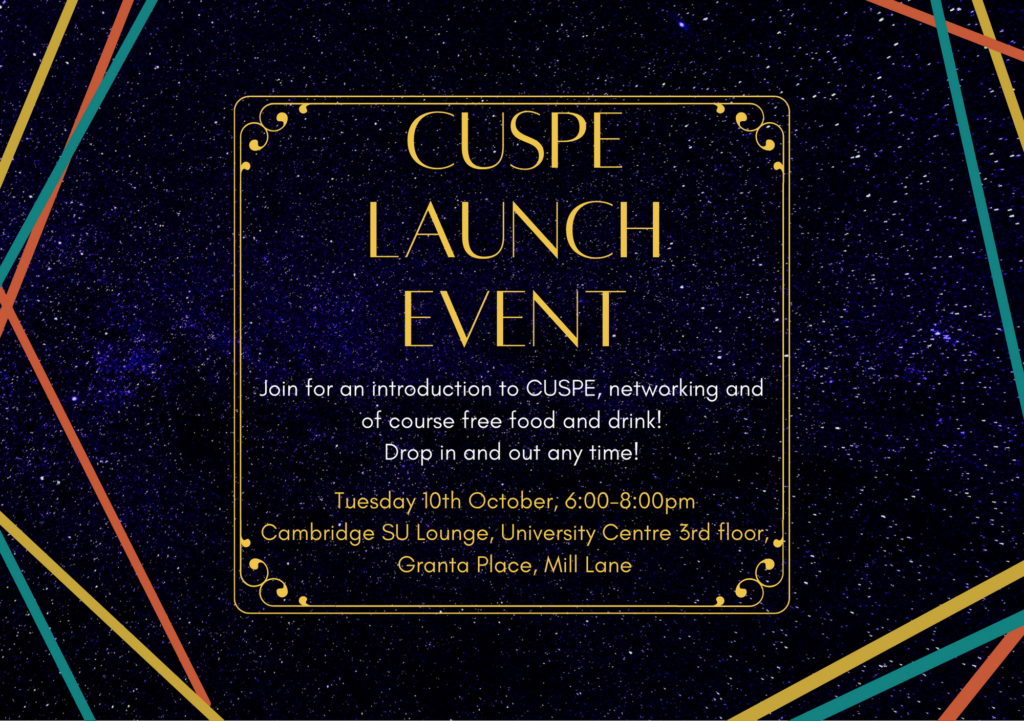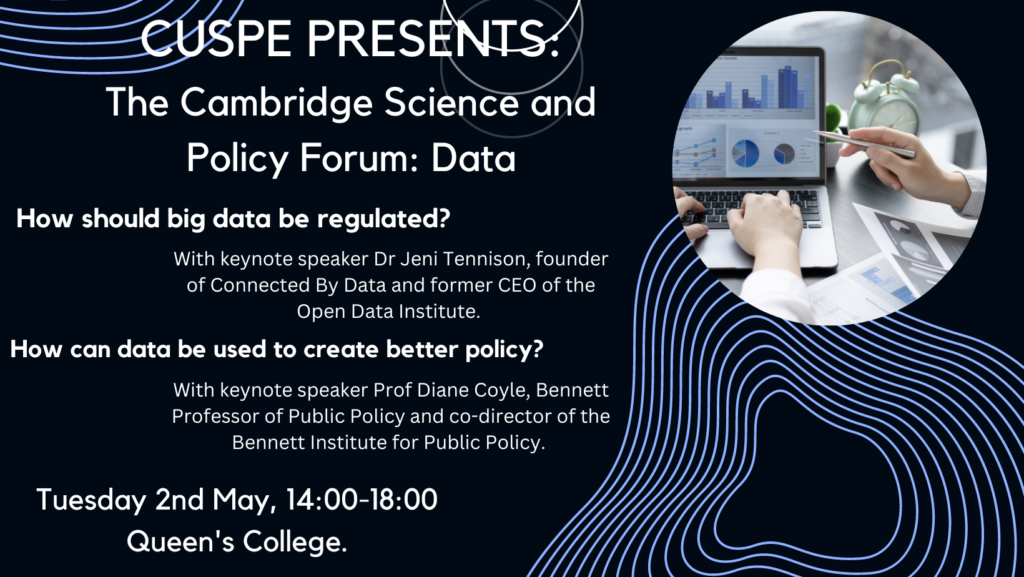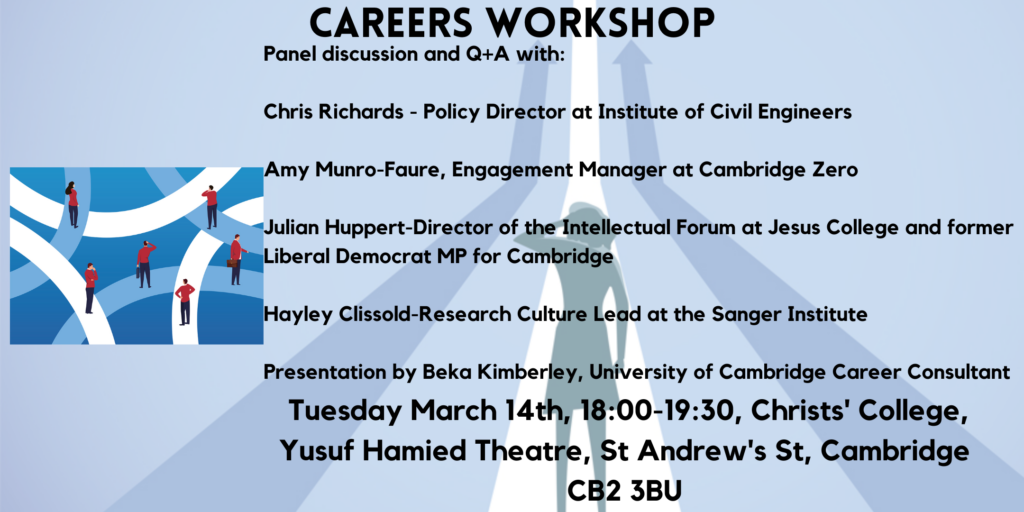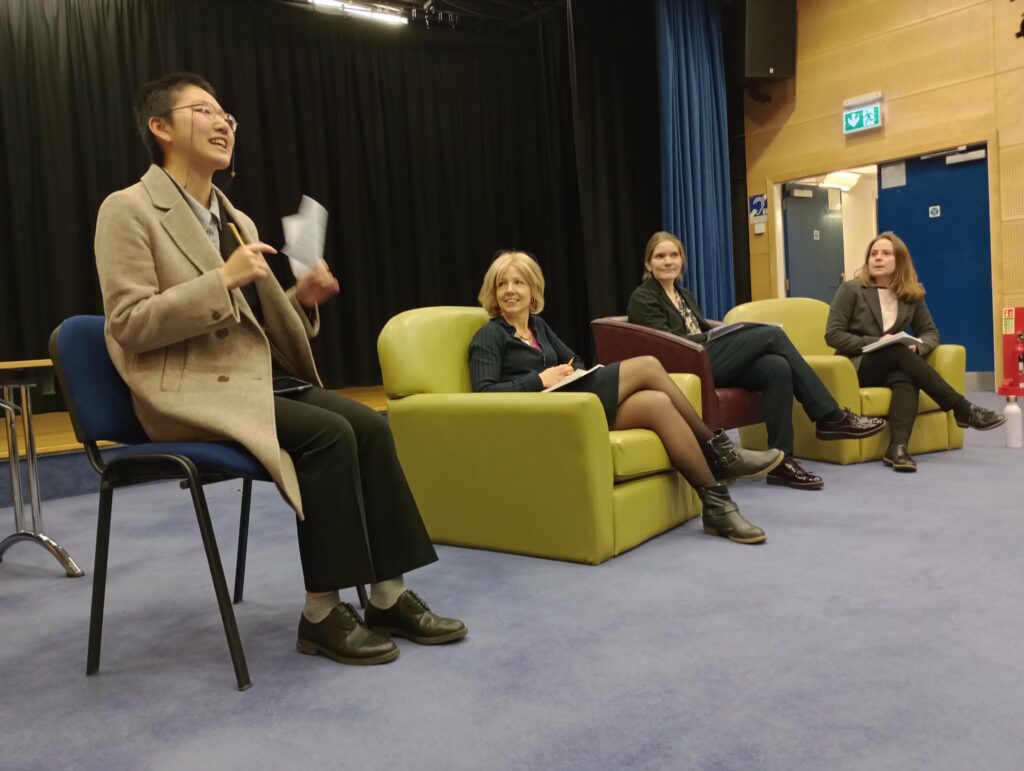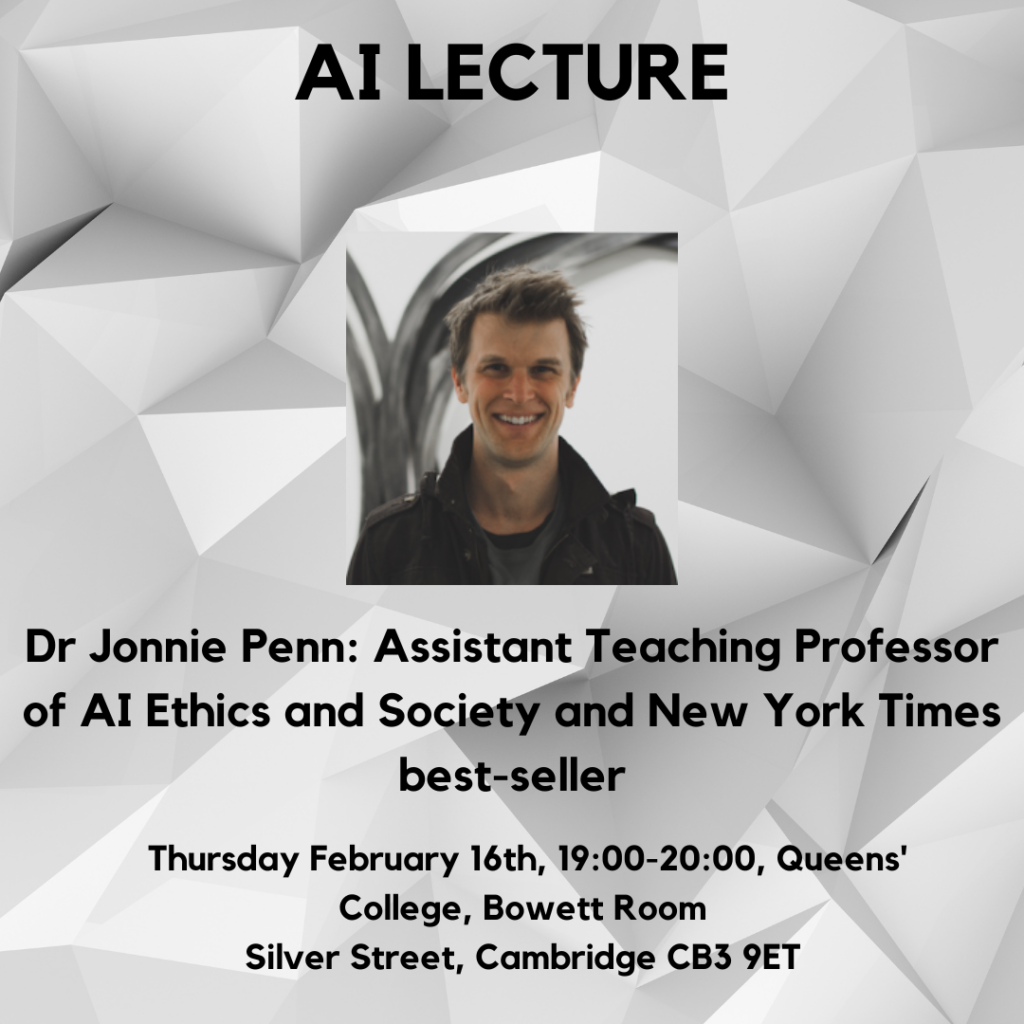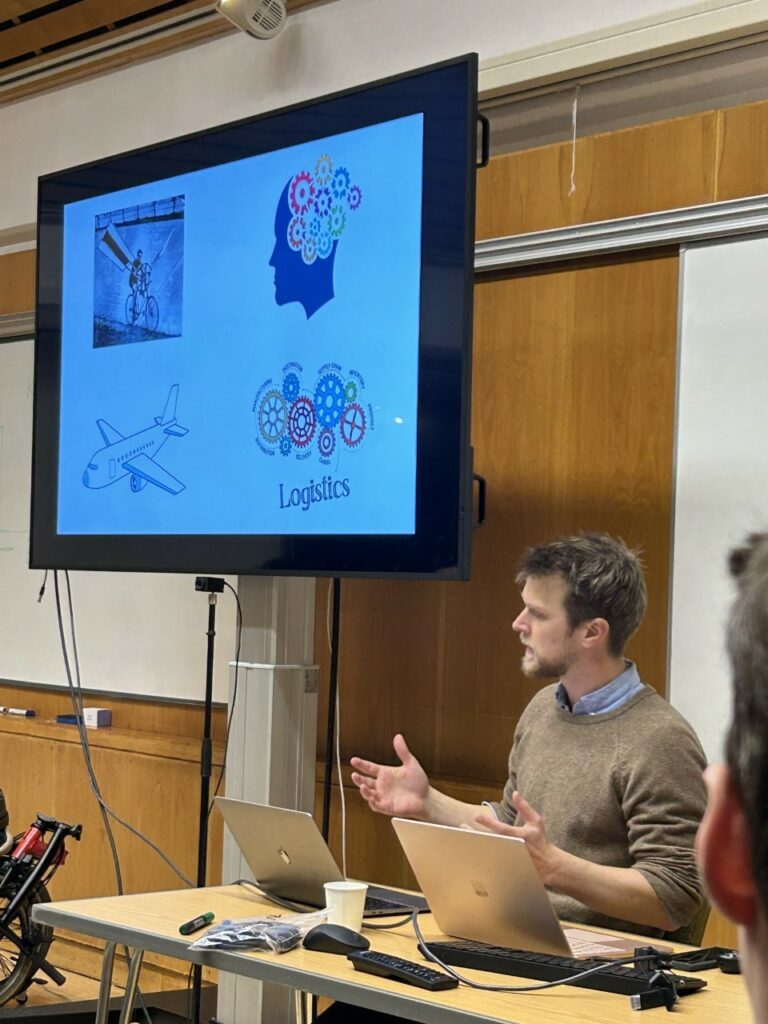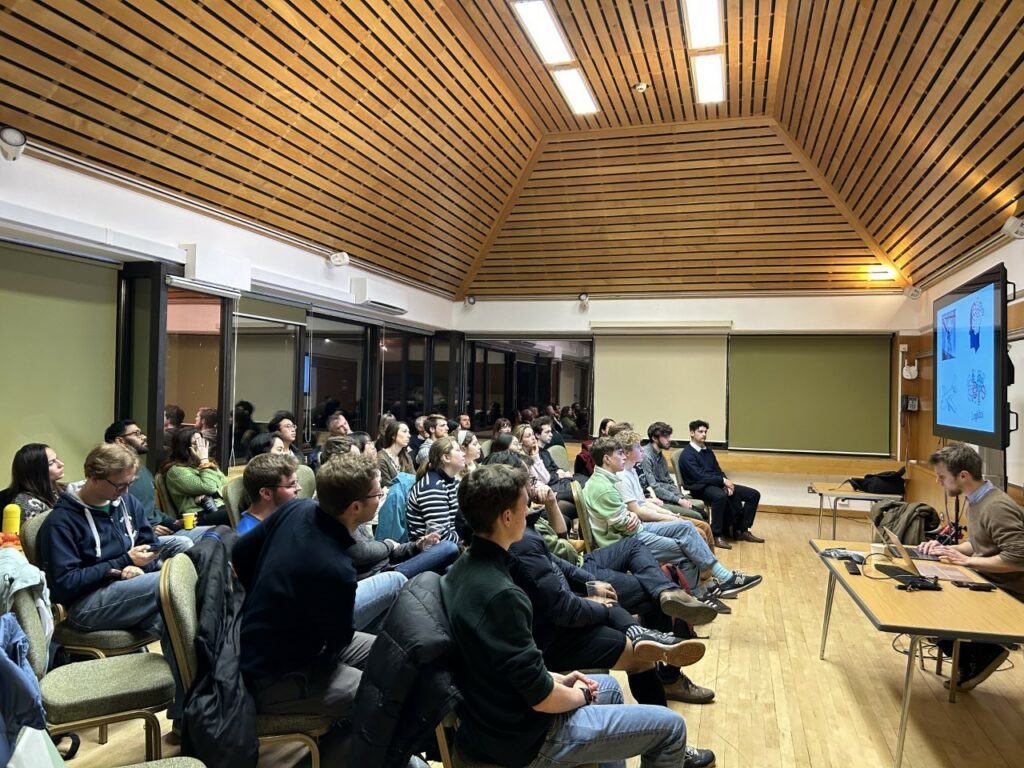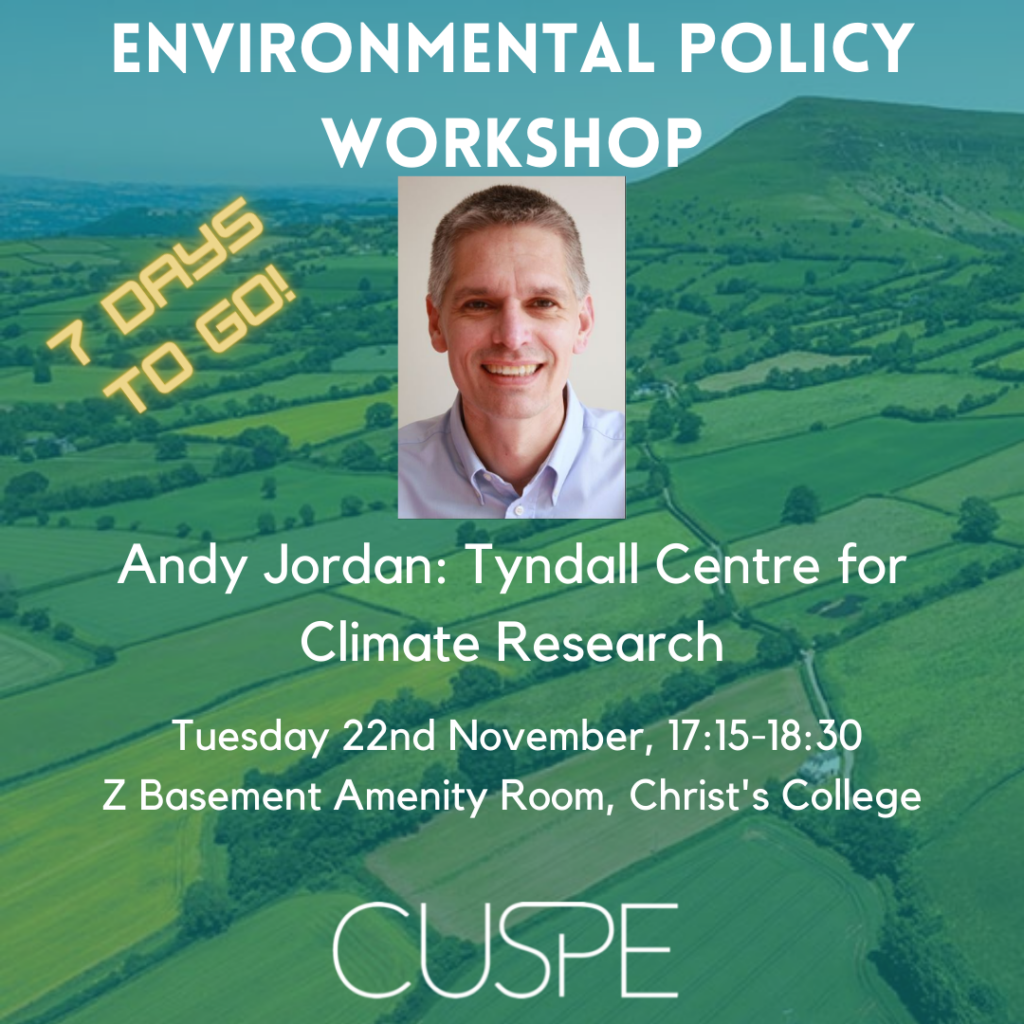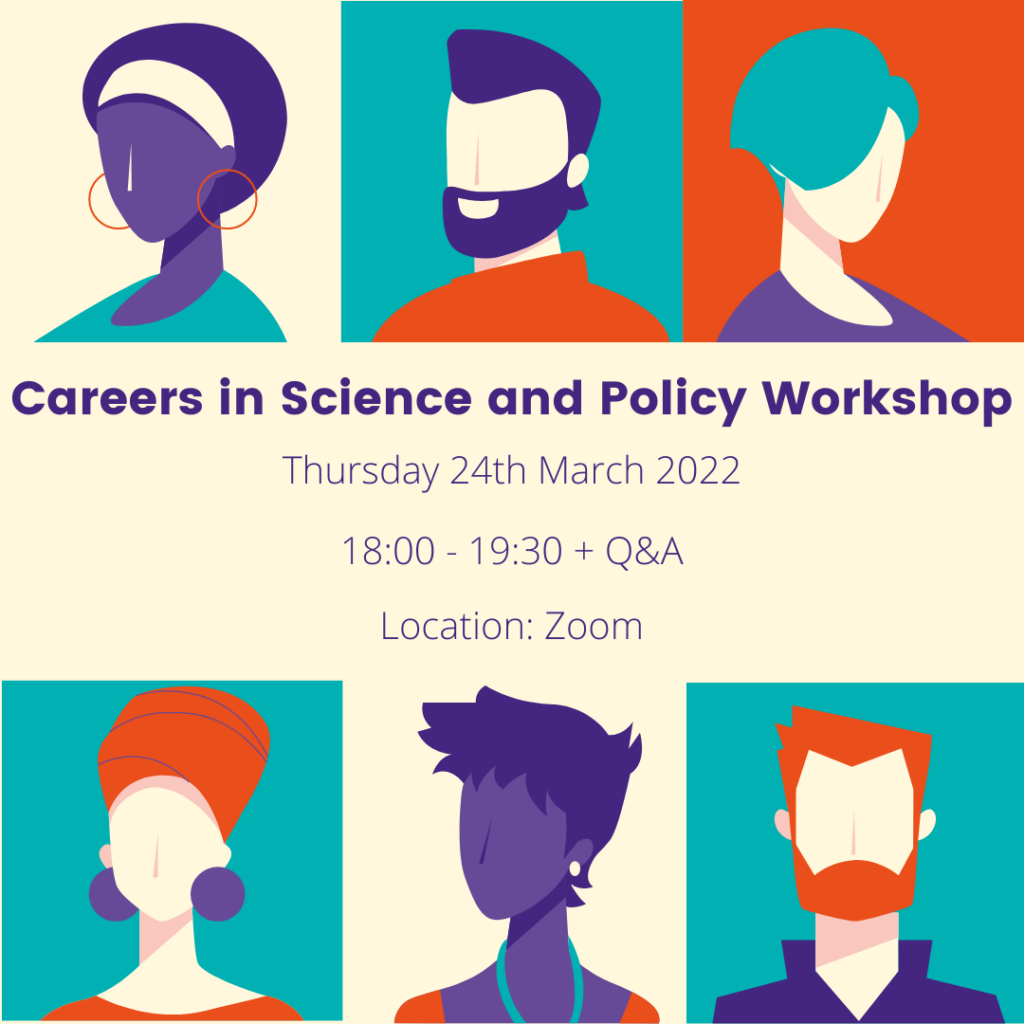2023-2024 Past Events

Climate Change Lecture
Sir David King unfortunately had to withdraw from speaking at the lecture due to health issues.
We greatly thank Professor Marie-Claire Cordonier Segger for taking the time to deliver a Climate Lecture in the same slot!
This lecture is titled “Courage, Commitment and Compliance – Crafting Climate Justice in the face of Global Crisis and Beyond”
Professor Marie-Claire Cordonier Segger FRSC FRSA WIJA is a world-leading scholar and jurist in the field of sustainable development law and governance. She serves as chair in sustainable development law and policy at the University of Cambridge alongside serving as executive secretary of the UN Framework Convention on Climate Change (UNFCCC) Climate Law and Governance Initiative, and chair of the Convention on Biological Diversity (CBD) Biodiversity Law and Governance Initiative. Check out the event details page for her full bio.
Refreshments provided!
Date: Thursday, 13th June
Time 18:15
Venue: Old Divinity School Main Lecture Theatre, St John’s College
CUSPE Forum 2024
Inequality in Science Programme
CUSPE’s Forum is our flagship annual conference, offering a range of expert panels and chance to engage with the diverse set of speakers!
Join us in two weeks at Christ’s College where we will be hosting three panel discussions covering how racism, sexism and ableism arise in science alongside how they can be tackled.
We hope you join us for the whole event, with refreshments and breaks across the afternoon, but feel free to join only panels of your choosing.
Date: Friday May 3rd
Location: Christ’s College, Yusuf Hamied Lecture Theatre
Time: 14:00-18:00
For more details about each of the speakers, click this link.
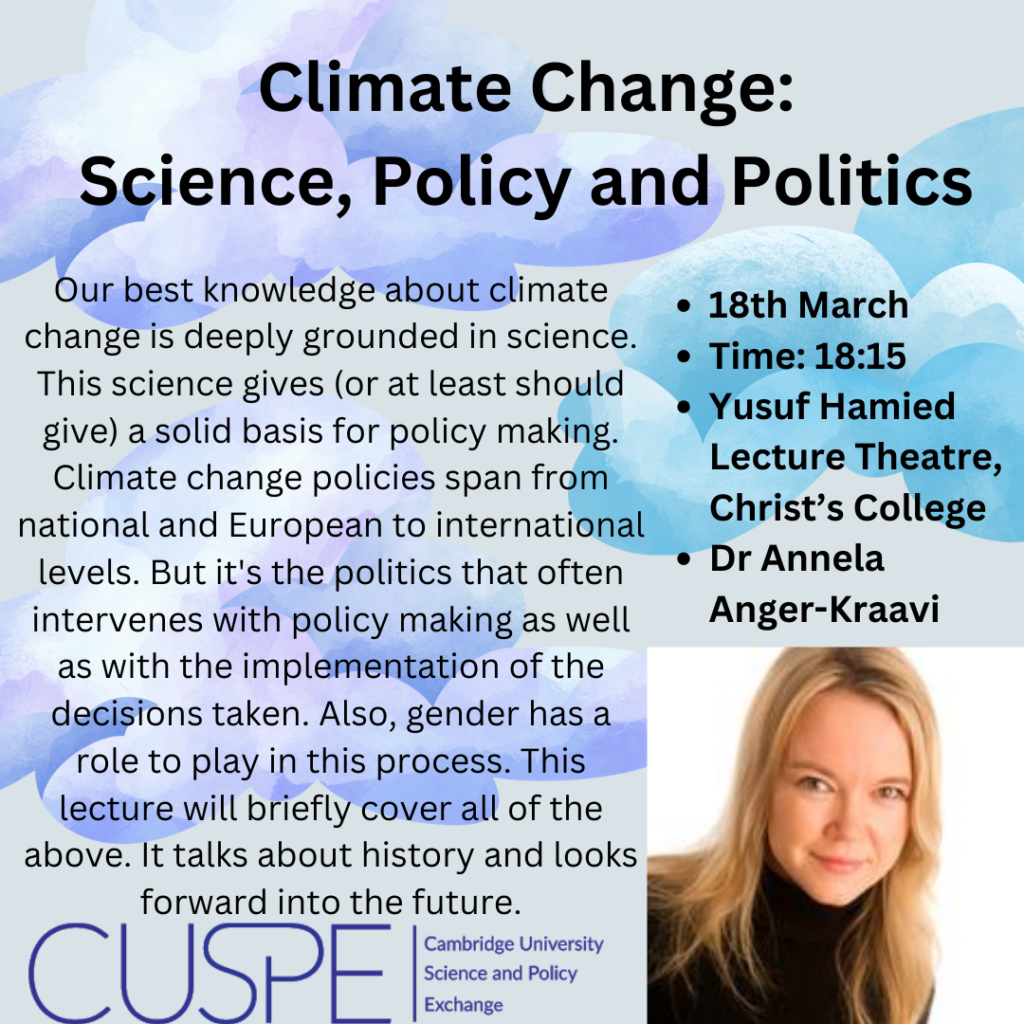
CUSPE would like to invite everyone to our next lecture of the year.
The speaker will be Dr Annela Anger-Kraavi
Anger-Kraavi is “an active researcher in the area of climate change economics and a lead of a newly established research group at the Cambridge Institute for Sustainability Leadership and a Director of Studies in Economics at Downing College, Cambridge. Outside academia she is an Adviser on international climate change policy and negotiations to the Estonian Ministry of the Environment, Vice-Chair of the UNFCCC Subsidiary Body for Scientific and Technological Advice (SBSTA) and Chief Executive of the Cambridge Trust for New Thinking in Economics.” (https://www.csap.cam.ac.uk/network/annela-anger/)
Her talk will look at the history and future of science-grounded climate change policymaking, spanning national, European, and international politics, decision-making, and policy implementation.
If you’re interested in climate change policy, come along!
Date: Monday, March 18
Time: 18:15
Venue: Yusuf Hamied Lecture Theatre, Christ’s College
Register here: https://camcuspe.ticketleap.com/climate-change-science-policy-and-politics/
Event Summary
Dr. Anger-Kraavi is a professor working in the Centre for Atmospheric Science at University of Cambridge, and negotiates for the EU on the economy of climate change. She told CUSPE about the unique perspectives and challenges of multi-stakeholder negotiations in large scale climate summits, and the tiny steps that are made along the way to secure a better world for all of us.
In the last 60 years, mean CO2 atmospheric levels rose from 280 to ~420 ppm, leading to global warming and catastrophic climate disasters. The United Nations Framework Convention on Climate Change (UNFCCC) is a major international convention that sets global emission reduction targets, including setting the Paris agreement target of temperature increase to “well below 2 degrees” in 2015. Temperatures have already increased by 1.27°C since pre-industrial level and are predicted to rise by another 1.5°C by 2033. Last year’s COP28 in UAE was the first climate summit that included a statement to transition away from fossil fuels, and massive international efforts lead to a slowdown in emission rates per unit production.
Dr. Anger-Kraavi discussed the concept of Just Transition – meeting green targets takes a toll, and the price is not paid in a unified way – some countries, especially developing ones, pay a bigger price in the transition. The Just Transition track in the UNFCCC includes both measures to reduce the impact of job and livelihood losses and industry phase-out on workers and communities, and measures to produce new, low emissions and decent jobs and livelihoods as well as healthy communities. There is a polarized debate as to whether just transition measures should be taken on national or international levels. There are also debates around the rules of offsetting emissions. For example, is it justified to purchase a forest in order to offset emissions and continue producing oil, although buying a land does not lead to additional carbon capture? Dr. Anger-Kraavi opened up many fascinating topics for further discussion and gave an interesting insight into the role of climate change scientists in crucial policy negotiations.
Summary by Dana Galili
Event Photo
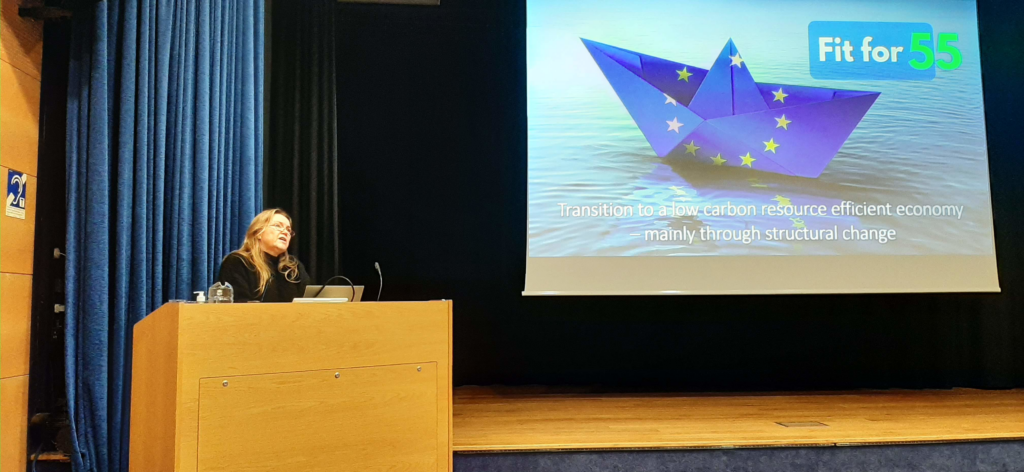
Biodiversity Lecture
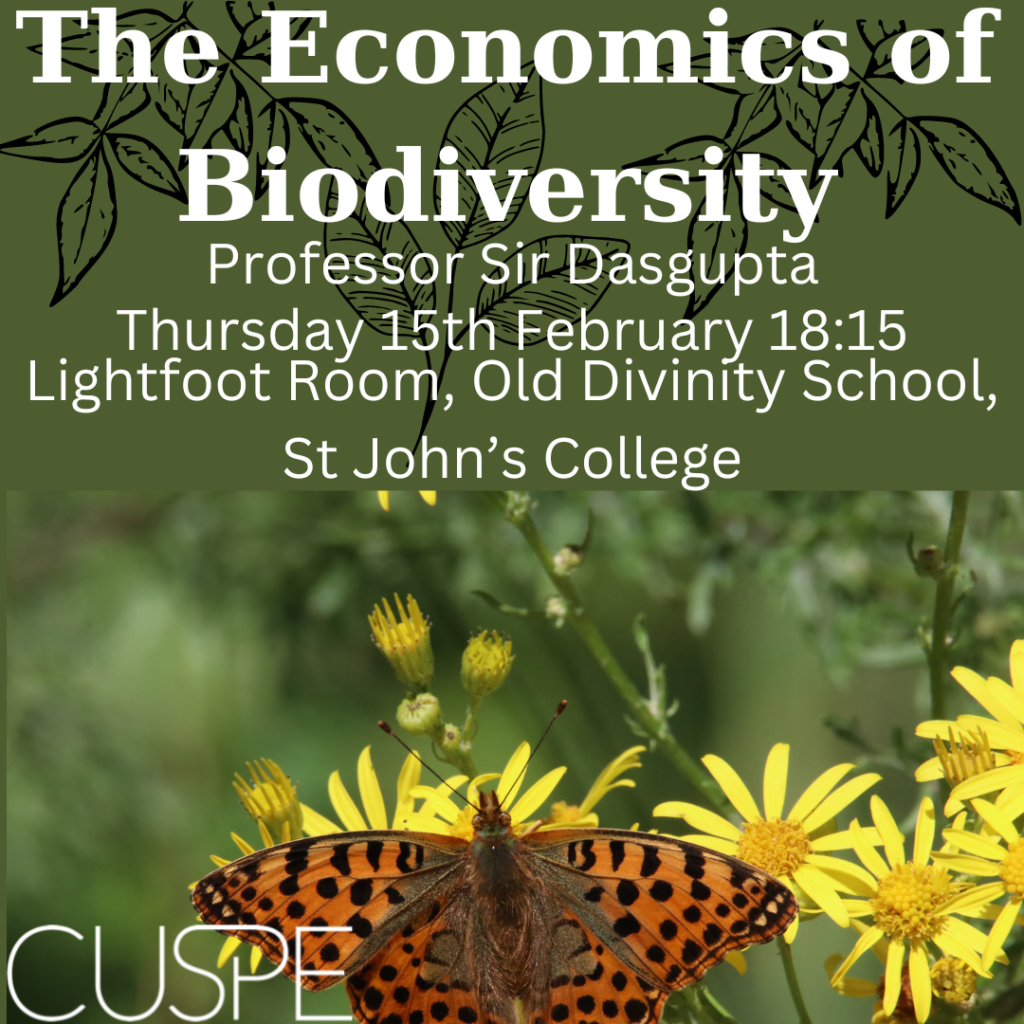
CUSPE would like to invite you to our second lecture of 2024!
This lecture will be on the Economics of Biodiversity and the talk will be given by our very own Emeritus Professor: Professor Sir Partha Dasgupta.
In 2019 he was commissioned by the UK Treasury to produce an independent review on the Economics of Biodiversity. This review has helped set the agenda for the UK Government’s 25-year environment plan.
Date: Thursday, February 15th
Time: 18:15
Venue: Lightfoot Room, Old Divinity School, St John’s College
“The Dasgupta Review is an independent, global review on the Economics of Biodiversity led by Professor Sir Partha Dasgupta (Frank Ramsey Professor Emeritus, University of Cambridge). The Review was commissioned in 2019 by HM Treasury and has been supported by an Advisory Panel drawn from public policy, science, economics, finance and business.
The Review calls for changes in how we think, act and measure economic success to protect and enhance our prosperity and the natural world. Grounded in a deep understanding of ecosystem processes and how they are affected by economic activity, the new framework presented by the Review sets out how we should account for Nature in economics and decision-making.”
Energy Policy Lecture

How we approach the grand challenge of the Energy Transition is one of the defining Science Policy questions of our time, and it kicks off our first lecture of 2024!
Dr Jane Dennett-Thorpe, Decarbonisation & Energy Transition lead at OFGEM will talk about: “Energy policy – evidence and its limits”, covering:
- How UK energy policy discourse changed over the last few decades, and how science shaped this
- How science and analysis contributes to decision-making
- Challenges of meeting net zero
Date: Monday, January 22nd
Time: 18:00
Venue: Yusuf Hamied Theatre, Christ’s College
Dr Dennett-Thorpe has been dedicated to addressing climate change and bringing forward the energy transition for over two decades, in a variety of roles. She has previously been Head of Evidence, the Deputy Head of Science, and Head of Industrial Energy Efficiency in the Department of Energy and Climate Change. Since 2019, she has worked in the GB energy regulator Ofgem. She led the development of Ofgem’s Decarbonisation Action Plan and now leads cross cutting strategic work to ensure the regulatory regimes can meet net zero challenges. She has also set up the Regulatory Energy Transition Accelerator to help energy regulators around the world provide more effective responses to the climate challenge.
This event is generously sponsored by Cambridge Zero, the University’s zero-carbon network, which means that the event will have substantial snacks and refreshments available before and after the lecture!

Event Summary
Over 80 attendees came to our lecture by Dr Jane Dennett-Thorpe on energy policy discourse within the UK. Dr Dennett-Thorpe relayed her professional experience working in climate policy in which as a physics student she became impassioned by the climate crisis during the late 1980’s and 90’s. Following her studies, she went to work for DEFRA which then led her to work at a number of different government departments such as the Department for Climate Change (DECC) and now onto Ofgem (Office for gas and electricity markets). During this time, she was involved in the development of evidence-based policy tools which were instrumental in how to communicate the cost-benefit analysis of different strategies for climate change mitigation. Dr. Dennett-Thorpe also emphasised the need for both evidence and narrative to lead to effective policy and stakeholder management. A personal example she discussed was her experience of persuading some difficult climate-skeptic Ministers. Dr. Dennett-Thorpe was able to highlight how Margaret Thatcher was one of the few national leaders who championed climate change mitigation (helped by her undergraduate in Chemistry which lead to greater understanding of the chemistry involved in global warming) which resonated with the cabinet. Overall, it was a fascinating talk detailing the often not talked about aspects which help behind the scenes to implement impactful policy. Our funding from Cambridge Zero provided refreshments during the lecture, as well as a tab at the college bar afterwards. It was a great evening with students socialising and networking, as well as having the opportunity to ask Dr Dennett-Thorpe questions in a more informal setting. Thank you so much to Dr Dennett-Thorpe for delivering this insightful lecture.
Summary by: Alexandra Klein
Event Photos
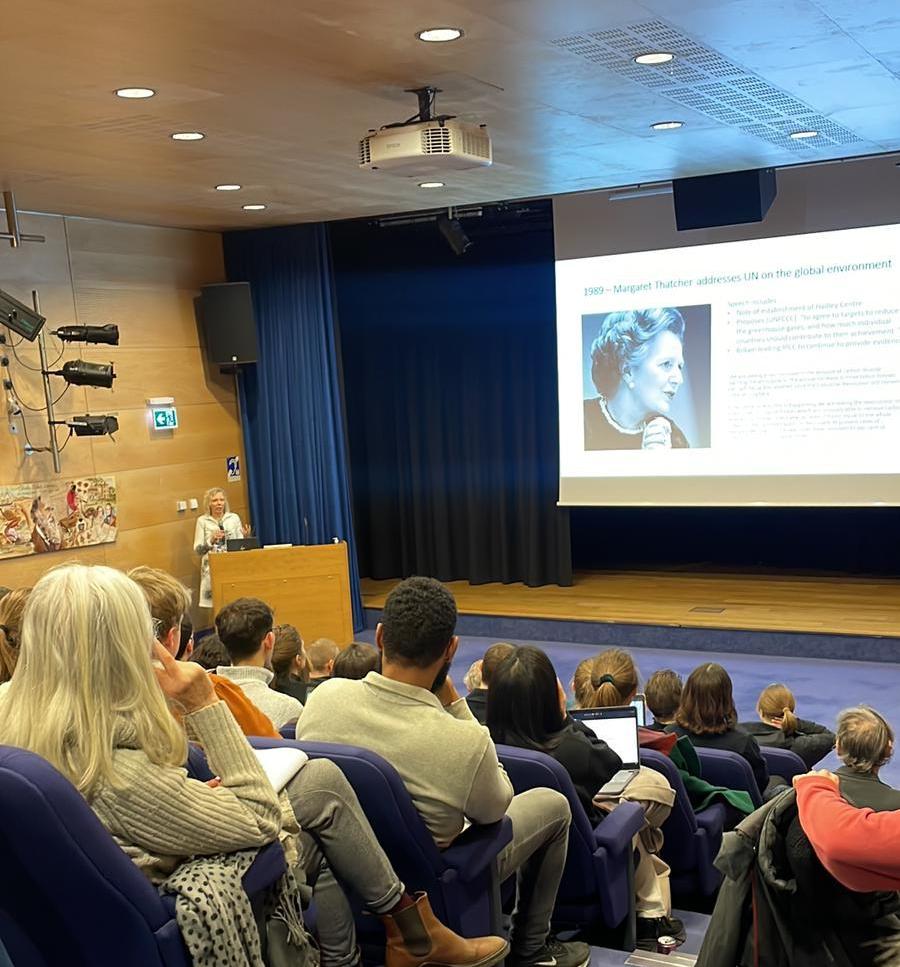
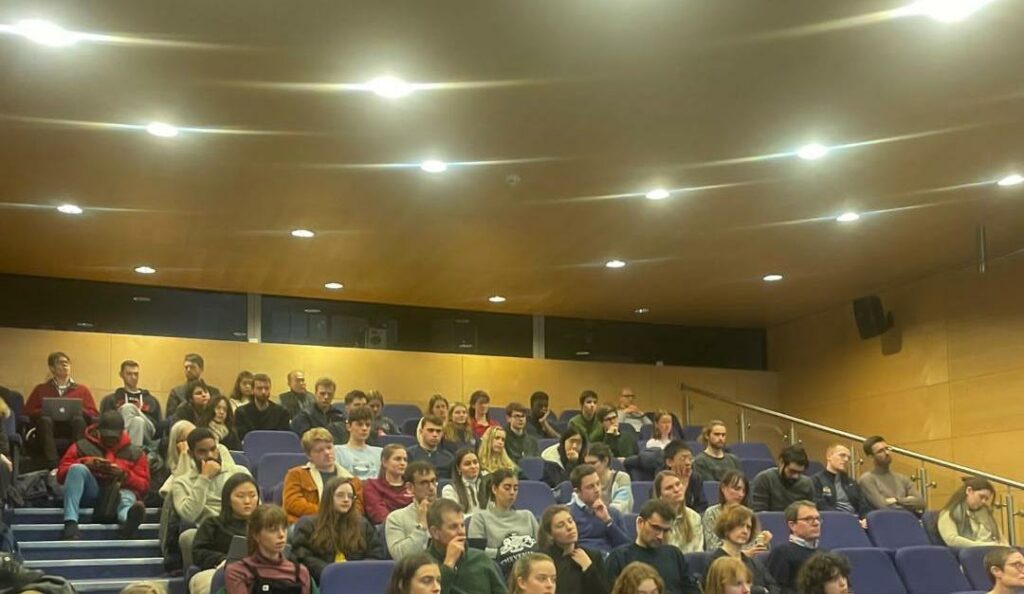
AI Policy Lecture
As we edge towards the end of Michaelmas, CUSPE would like to invite you to the second lecture of the year on the fascinating and newsworthy topic of AI safety. This talk will be given by Dr Ann Kristin Glenster.
Details:
Speaker: Dr Glenster
Date: Thursday 30th of November
Time: 18:00
Venue: Yusuf Hamied Theatre, Christ’s College
Dr Ann Kristin Glenster is a Senior Policy Advisor on Technology Governance and Law at the Minderoo Centre for Technology and Democracy, University of Cambridge. She has published widely on AI and is particularly interested in the ethical implications of AI on society, education, and the economy.
Dr Glenster holds a PhD in Law from the University of Cambridge and has been a doctoral researcher at the Harvard Law School. She has taught at the University of Cambridge, University of Oxford, LSE, Brown University, and Harvard University.
She is the Executive Director of the Glenlead Centre, an independent spinoff from the University of Cambridge, bridging research and policy on digital technologies for the public good.
From the AI Safety Summit to the recent OpenAI Board decisions, AI Policy has come to the forefront of news. Join us for a timely and informative lecture from an expert in the AI Policy field!
Event Summary
On November 30th, Dr Ann Kristin Glenster discussed the advantages of using AI for advancing innovation, the risks and challenges emerging from that, and the need for regulation. While technology progresses quickly, legislation and regulation progress slow, which leads to a gap. Risk factors include bias and discrimination, misclassification and errors, automation and job losses, data protection, accountability and liability, lack of expertise / understanding of the “black box” processes. On the axis between innovation and regulation, current UK policies lean more towards innovation, while EU legislation and policies enforce stricter regulation. The recent AI Safety Summit concluded with an encouraging statement acknowledging the need for regulation, but a cohesive strategy of how to approach it is still lacking.
Summary by: Dana Galili
Event Photos
Research Culture Panel Discussion
Speakers:
Liz Simmonds – Head of Research Culture, University of Cambridge
Dr Hayley Clissold – Policy Lead for Research Environment, Wellcome Sanger Institute
Saskia Frisby – PhD student, MRC Cognition and Brain Sciences Unit, University of Cambridge
- Date: Tuesday 21st of November
- Time: 18:15-19:30
- Location: Lloyd Room, Christ’s College
Research culture encompasses inclusivity, research integrity, research evaluation, open access, research careers, societal outreach, equal opportunities, wellbeing, research data, data sharing, and anything you can think impacts the day-to-day work in research.
Whether you’re considering or engaging in a career in research, or are simply interested in how policy shapes research culture to harness talent to its potential, this discussion panel is for you!
Come along to this expert panel discussion–an interactive discussion where we want your thoughts!
Event Photo
Building Societal Preparedness for Globally Disruptive Volcanic Eruptions
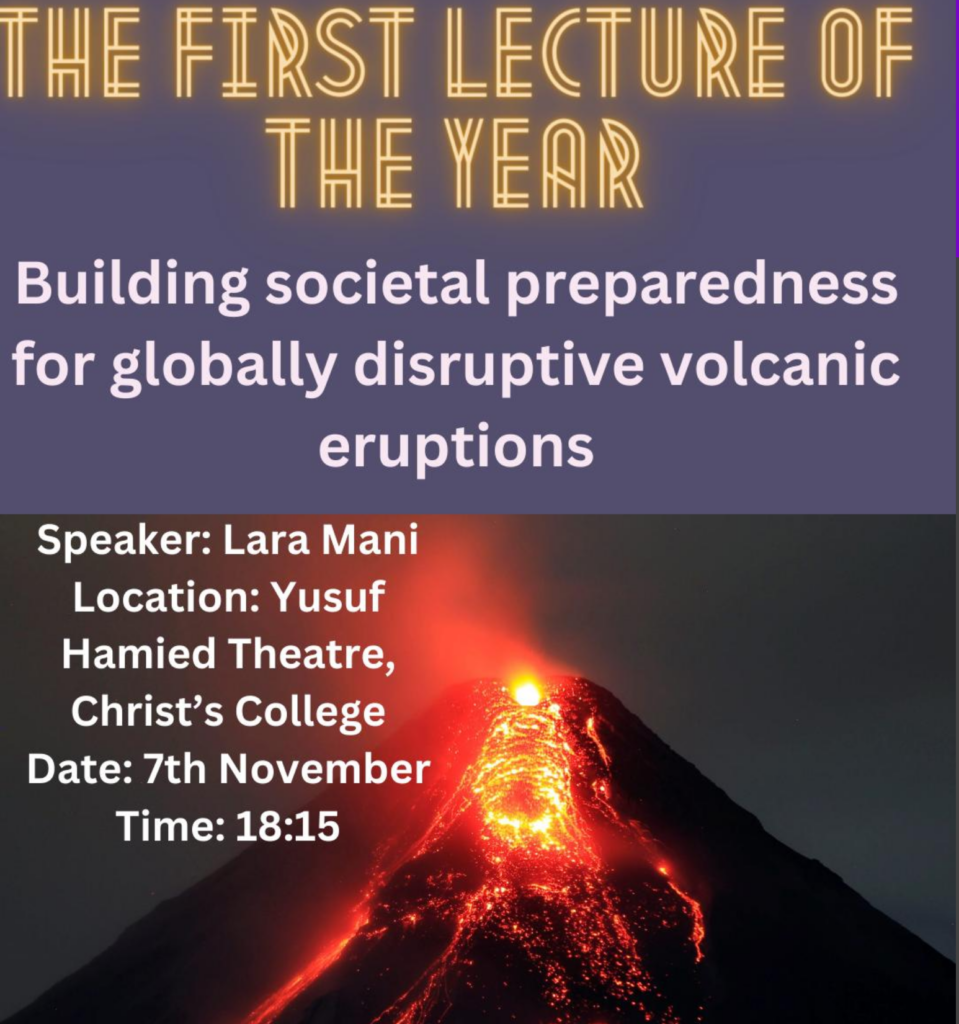
As we hit the halfway point of term CUSPE held its first lecture of the year on volcanoes, risk, and crisis management. The talk was given by Lara Mani.
Speaker: Lara Mani
Date: Tuesday 7th of November
Time: 18:15
Venue: Yusuf Hamied Theatre, Christ’s College
“Lara is a Senior Research Associate at the Centre for the Study of Existential Risk (CSER), where her research seeks to understand the efficacy of various communication methods and strategies for gaining traction for the mitigation and prevention of global catastrophic risks (GCRs). As part of the ‘A Science of Global Risk’ project, Lara seeks to provide empirical evidence to understand what communication methods, tools and messaging work to increase awareness of GCRs with policy makers, civil society, industry and publics. This research to date has adopted the use of role-playing games for increasing awareness for the importance of AI safety and ethics, and scenario-based exercises for exploring possible futures in biosecurity. Lara’s background is in volcanic risk communication and establishing evidence-based practice for the education and communication of volcanic hazards, particularly within the Caribbean region. Her PhD explored the use of video games for volcanic hazard education and outreach programmes and most recently she has been working with partners in the Caribbean to evaluate the efficacy of the crisis communications campaigns during the 2020-2021 eruption of La Soufriere, St Vincent.”
This talk discussed the interaction between research and policy with regards to natural disasters and global catastrophes.
2023 Policy Writing Workshop
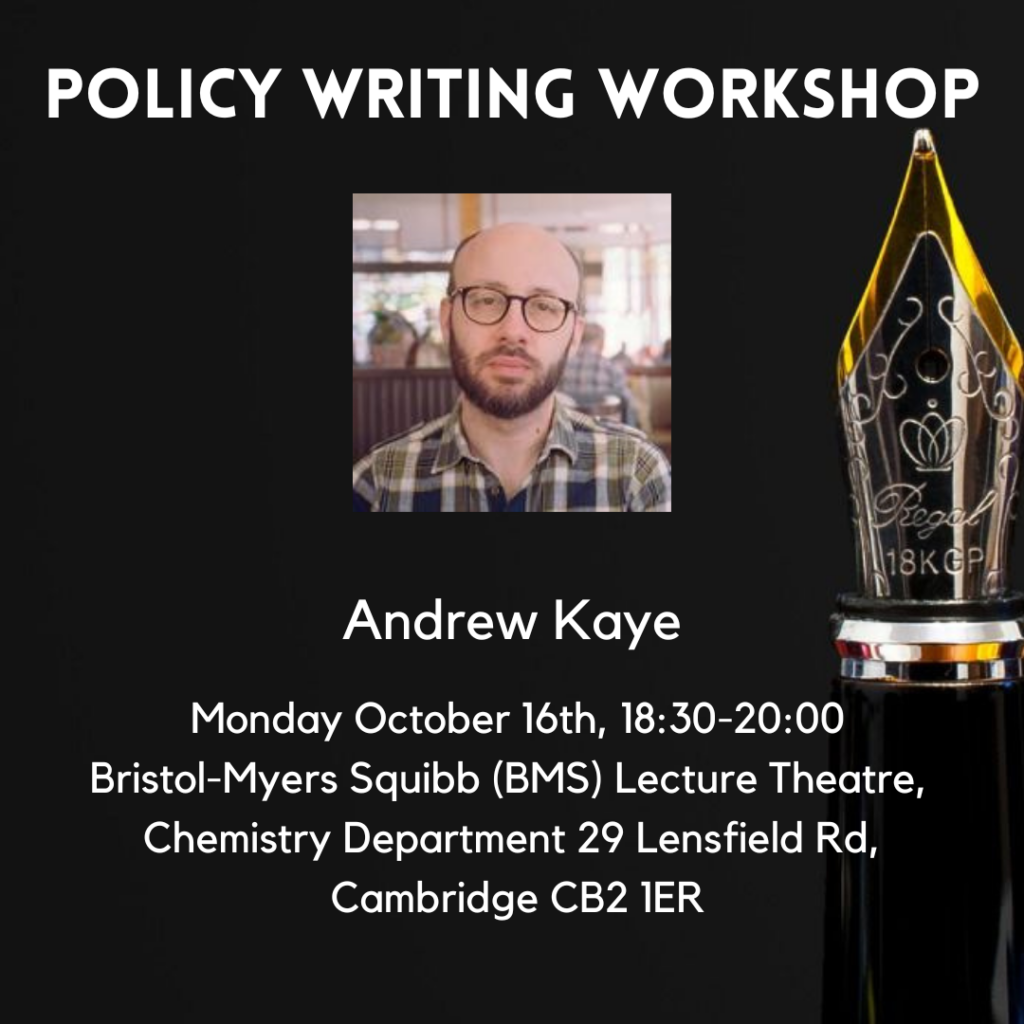
The first event of the new year featured the return of Andrew Kaye’s popular writing workshop.
Kaye’s workshop has been consistently well recieved for providing advice on enhancing writing. It’s especially targeted at those who want to influence policy makers and better explain the significance of their research, but with general transferrable skills.
We learned more about writing to support policy development, covering both what civil servants and ministers expect and how to provide the information they really need. It was an interactive session, including time for Q&A.
Date: Monday 16th October
Time: 18:30-20:00
Location: BMS Lecture Theatre, Chemistry Department, 29 Lensfield Road
Speaker: Dr Andrew Kaye, Government Office for Science
Andrew Kaye works at the Government Office for Science, where his responsibilities have included coordinating science advice during emergencies – for which he received a MBE in 2022 – and leading projects on emerging technologies and critical infrastructure. Previously he has been a speechwriter for ministers and worked in government communications. After completing a PhD at Cambridge, Andrew taught US history at the Universities of Newcastle and Durham before joining the Civil Service.
Event Photo
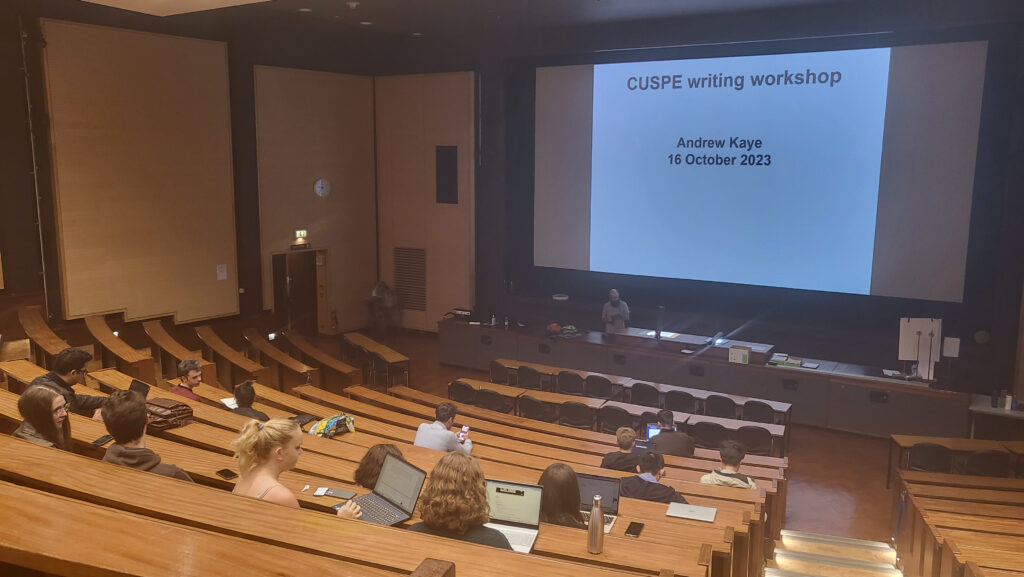
CUSPE Launch Event
Join us for an introduction to CUSPE, networking and, of course, food and drink! Drop in (and out) any time!
Date: Tuesday 10th October
Time: 18:00-20:00
Location: Cambridge SU, University Centre 3rd floor, Granta Place, Mill Lane
Sign up here:
https://camcuspe.ticketleap.com/cuspe23-24-launch/
2022-2023 Past Events
The Cambridge Science and Policy Forum: Data
CUSPE is delighted to announce the details of our annual conference, The Cambridge Science Science and Policy Forum, which will focus on all things data.
The afternoon will be split into two halves:
First, we will consider the question: ‘how should big data be regulated?’. Dr Jeni Tennison, founder of Connected By Data and former CEO of the Open Data Institute, will give a keynote talk, which will be followed by a panel discussion. Panellists will include Professor David Leslie, Director of Ethics and Responsible Innovation Research at the Alan Turing Institute, and Michael Birtwistle, Associate Director of AI and data law at the Ada Lovelace Institute.
We will then go on to discuss: ‘how can data be used to create better policy?’. The keynote speaker for this question will be Professor Diane Coyle, Bennett Professor of Public Policy and co-director of the Bennett Institute for Public Policy, and our panellists include Professor Sir Ian Diamond, National Statistician for the United Kingdom.
Refreshments will be provided throughout the afternoon, and attendees are encouraged to stay for a drinks reception and networking afterwards
Registration is of course free as ever!
Date: Tuesday 2nd May
Location: Queen’s College
Time: 14:00-18:00
Register here: https://cuspe.us20.list-manage.com/track/click?u=68a25a801e2b5c3444b338a4e&id=90f1cfa1fb&e=6987173715
Event Summary
This year, the CUSPE Annual Forum took place on the 2nd of May at Queens’ College, University of Cambridge. The forum was organized by our forum team: Harry Dunn (team leader), Elizabeth Knight (team member) and Dr Ariadna Albajara Sáenz (team member). The theme this year was “Data”, chosen due to the interconnectedness between policy and data. Research findings are used to inform and shape policies. However, the process of translating evidence into policy continues to be complex. In addition, the rapid rise of big data brings enormous benefits for our society but also poses multiple challenges, demanding improved data regulations.
The forum revolved around two subthemes: “How should big data be regulated?” and “How can data be used to create better policy?”.
The first session focused on “How should big data be regulated?” and started with a presentation by our keynote speaker Dr Jeni Tenison (Executive Director of Connected by Data and former CEO of the Open Data Institute). This was followed by a panel discussion with Dr Mahlet Zimeta (Digital Expert for the Competition and Markets Authority and former Head of Public Policy at the Open Data Institute), Professor David Leslie (Director of Ethics and Responsible Innovation Research at The Alan Turing Institute), Michael Birtwistle (Associate Director of AI Law and Regulation at the Ada Lovelace Institute) and Dr Jeni Tenison. Key topics discussed included: the private sector’s treatment of personal data, the use of personal data for political purposes, surveillance and monitoring, algorithmic biases, and privacy concerns. The panel was chaired by Harry Dunn.
The second session focused on “How can data be used to create better policy?” and started with a talk from our second keynote speaker, Professor Diane Coyle (Professor of Public Policy and Co-Director of the Bennett Institute for Public Policy). This was followed by a panel discussion with Professor Sir Ian Diamond (UK’s national statistician), Elena Rosa Brown (Research Leader at RAND Europe), Rob Anderson (Head of Implementation and Policy at the Centre for Homelessness Impact) and Professor Diane Coyle. Speakers discussed the importance of employing rigorous research methods, diversifying data sources, balancing quantitative and qualitative data, effectively communicating research findings, and engaging with stakeholders and policymakers. The panel was chaired by Dr Ariadna Albajara Sáenz.
We thank our speakers for their valuable time and a stimulating discussion!
Summary by Ariadna Albajara
2023 Careers in Science and Policy Workshop
Date: Tuesday March 14th
Time:18:00-19:30
Location: Christs’ College, Yusuf Hamied Theatre
Chris Richards – Policy Director at Institute of Civil Engineers, with experience in communication and environmental policy
Dr Amy Munro-Faure – Engagement Manager at Cambridge Zero, interested in connection between research and operation sustainability, with a PhD in evolutionary biology and research in conservation.
Dr Julian Huppert – Director of the Intellectual Forum at Jesus College, previously Liberal Democrat MP for Cambridge. Julian trained as a scientist at Trinity College, Cambridge, and has Master’s degree on Public Policy and will provide insight on general public policy landscape
Dr Hayley Clissold – Research Culture Lead, Director’s Office at the Sanger Institute, with an experience of being an Science policy intern at the Academy of Medical Sciences and Wellcome after Biochemistry Bsc undergraduate.
Beka Kimberley – University of Cambridge Career Consultant, will give us a presentation on deciding what role would suit them best, finding opportunities, creating effective applications, and understanding the policy landscape.
This workshop aims to share career tips and necessary skills for students and early-career researchers who are considering careers in science and policy. This will be an interactive session, including plenty of time for Q&A.
Event Photo
“Peak Digital: AI, Decomputerisation, and Life After Big Tech”
Advances in artificial intelligence from AlphaFold to the recent phenomena of DALL-E and ChatGPT make it clear the field of AI is moving at an ever-accelerating pace. There is little doubt AI will have diverse applications in industry, healthcare, education and military contexts, as well as many other fields. Ethics professor and New York Times best-selling author Jonnie Penn will be discussing with us how we can keep up with developments in AI and ensure that these technologies are being employed and regulated according to fair, just, and egalitarian principles, and how work into democratic decision-making can help to inform policymakers.
Date: Thursday 16th February
Time: 19:00-20:00
Location: Bowett Room, Queens’ College
Register here:
https://www.eventbrite.co.uk/e/peak-digital-ai-decomputerisation-and-life-after-big-tech-tickets-539792984347
Event Summary
On Thursday 16 February, we had the pleasure of welcoming speaker Dr Jonnie Penn, technology historian and number one New York Times bestselling author.
Dr Penn presented a stimulating lecture on what he has titled ‘the age of care’, and what he also refer to as a movement towards ‘de-computerisation’ or ‘de-digitalisation’. In this lecture, Dr Penn discussed the choice that society has for its reliance on Artificial Intelligence – we were challenged to think beyond the default position of AI as a constant in our everyday lives.
This lectured covered some of the thorny questions that AI poses for policymakers and broader society, both now and increasingly as it expands in the future. A few of these issues include environmental impact, destabilisation of traditional work, and the shifting nature of how we spend our leisure time.
Dr Penn provided an overview of the history of AI in comparison to materialist history. This grounded our further discussion on how it is impacting our current lives. The room was left with some thought-provoking questions, including ‘will the log-off movement gain traction?’ and ‘is developing AI a waste of smart peoples’ time and resources?’
We thank Dr Penn for his time and for such a fabulous discussion!
Summary by Genevieve Marsh
Event Photos
UK Environmental Policy Workshop
Join Andy Jordan, Professor of Environmental Policy in the Tyndall Centre for Climate Change Research at UEA where he will be sharing his expertise in a workshop centred around environmental policy especially in the context of the UK post-Brexit
Professor Jordan is the author of several books on the European Union’s environmental policy making, including The Tools of Policy Formulation. He has advised the OECD, the UK Cabinet Office, DEFRA, the European Commission, WWF and the RSPB.
In 2015-16 he advised the UK Parliamentary environmental audit committee inquiry on the EU referendum and in 2016-20 served on the Scientific Committee of the European Environment Agency. He currently sits on DEFRA’s Science Advisory Council: Social Science Expert Group.
Date: Tuesday 22nd November
Time: 17:15-18:30
Location: Z Basement Amenity Room, Christ’s College
Register here:
https://cuspe.us20.list-manage.com/track/click?u=68a25a801e2b5c3444b338a4e&id=a558413fd6&e=6987173715
Event Summary
On Wednesday 22 November, Professor Andy Jordan delivered an engaging talk about the UK and environmental policy. The talk focused on the UK’s position as an environmental policy actor, particularly in the wake of Brexit. Some key topics he discussed included: the EU approach to environmental policy, its development and maturation; a brief history of UK policy development alongside the EU through the 1990s and early 2000s; post-Brexit cooperation with the EU and new areas of potential cooperation; potential flash points between EU and UK policy; and how we can understand and measure the UK’s position empirically post-Brexit. Thank you to Andy and to everyone who participated.
Summary by Genevieve Marsh
Event Photos

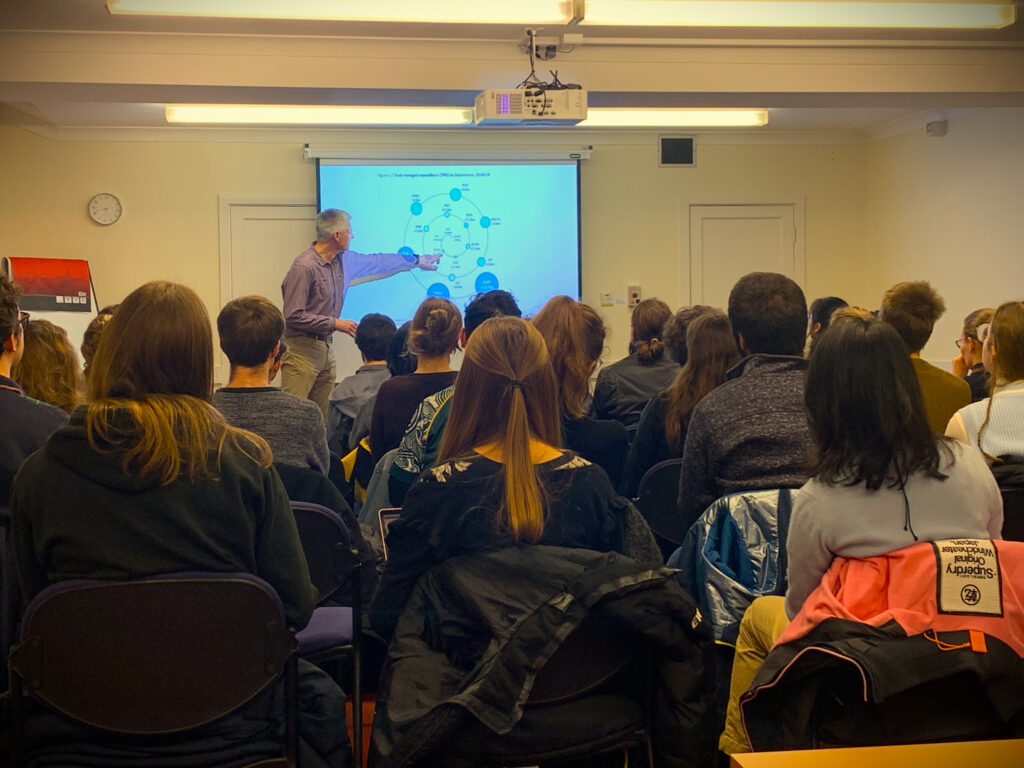
Policy Writing Workshop
Do you want to learn how to influence policy makers and better explain the significance of your research?
This workshop is perfect for anyone seeking to improve their writing skills. We will learn more about writing to support policy development, covering both what civil servants and ministers expect and how to provide the information they really need. This will be an interactive session, including time for Q&A.
Speaker: Dr Andrew Kaye, Government Office for Science
Andrew Kaye works at the Government Office for Science, where his responsibilities have included coordinating science advice during emergencies – for which he received a MBE in 2022 – and leading projects on emerging technologies and critical infrastructure. Previously he has been a speechwriter for ministers and worked in government communications. After completing a PhD at Cambridge, Andrew taught US history at the Universities of Newcastle and Durham before joining the Civil Service.
Date: 20 October
Time: 17:30-19:00
Location: 16 Mill Lane, the Postdoc Centre Eastwood Room
Event Photo
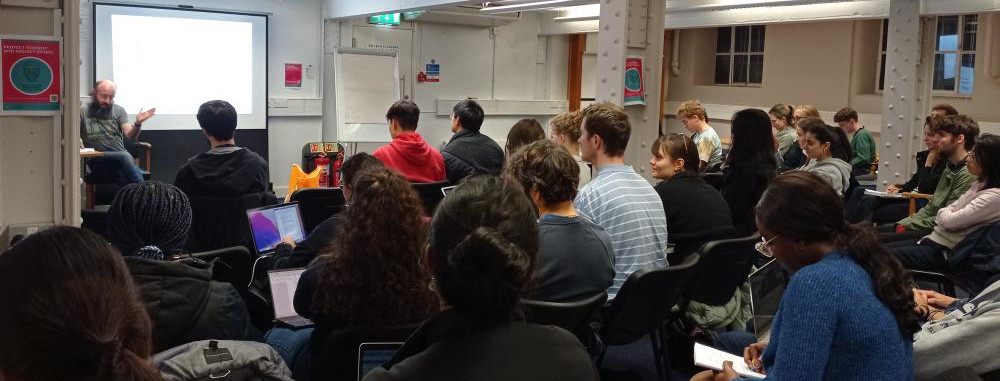
2021-2022 Past Events
2022 Careers in Science and Policy Workshop
This workshop aims to share career tips and necessary skills for students and early-career researchers who are considering careers in science and policy. The speakers have diverse backgrounds, from British government departments, Royal Societies, The Academy of Medical Sciences and the University’s Careers service.
Speakers:
Dr Deirdre Black – Head of Research & Innovation, Royal Society of Chemistry
Deirdre oversees RSC’s science policies and programmes, working with scientists and other stakeholders across the research and innovation community, including policymakers and funding agencies. Her work includes horizon-scanning and futures, identifying trends in fundamental science, applications to global and industrial challenges and higher education. Deirdre is a member of the Board of the European Technology Platform for Sustainable Chemistry. She has a PhD in theoretical particle physics and held postdoctoral positions in the USA and UK. She also worked at Project 2061, a science education policy unit at the American Association for the Advancement of Science in Washington DC. She joined the Royal Society of Chemistry in 2011.
Dr Helen Ewles – Head of Research & Innovation Policy at the Royal Society of Engineering
Helen oversees the RAEng’s science policies and programmes as well as undertaking a part-time secondment in the new Office for Science and Technology Strategy (OSTS). She was previously a post-doctoral research associate in the Department of Pathology at the University of Cambridge. During her academic career, she undertook a secondment in the Department for Business, Innovation and Skills (BIS) within the Postgraduate Policy team and was a founding member of the Cambridge University Science and Policy Exchange (CUSPE). She obtained her PhD in 2011 from Imperial College London.
Dr Alice Fletcher-Etherington – Policy Officer, Academy of Medical Sciences.
Alice works on the delivery of the Academy of Medical Sciences’ UK health policy projects. Her current themes of work include integration of the NHS and academia, COVID-19, antimicrobial resistance, health inequalities and public health reforms. She obtained her PhD in 2021 from the Cambridge Institute for Medical Research (CIMR), at the University of Cambridge. During her studies, she was co-president of the Cambridge Branch of Students for Global Health, where she lead a team of 60 students working to tackle global and local health issues through education, advocacy and community action. Alice also participated in CUSPE’s 2020 policy challenges, where she and her team developed a policy report on the effect of local government decision making on the ability of communities to lessen the need for formal health and social care services. She also contributed to the work of the think tank Polygeia with multiple policy reports on the acceleration of vaccine R&D.
Beka Kimberley – Higher Education Careers Consultant, University of Cambridge Careers Service
Beka works for the Careers Service to help members of the university better understand their career options and pathways. She will share tips and advice for students and young researchers considering careers in science and policy and will introduce Careers Service’s resources that could help with skills development and career transitions.
Join us on Thursday 24th March, 18:00 – 19:30 GMT online on Zoom by clicking here:
https://us06web.zoom.us/meeting/register/tZAvd-CupjorH9IFoIV4EMN-gNDDMKpXCtbW
(Meeting ID: 842 0968 1156, Passcode: psvb@9QzhS)
You can also find the Zoom link via the Eventbrite registration page,
sign up by clicking the button below:
Register here:
https://cuspe.us20.list-manage.com/track/click?u=68a25a801e2b5c3444b338a4e&id=0d06aa06e8&e=6987173715



